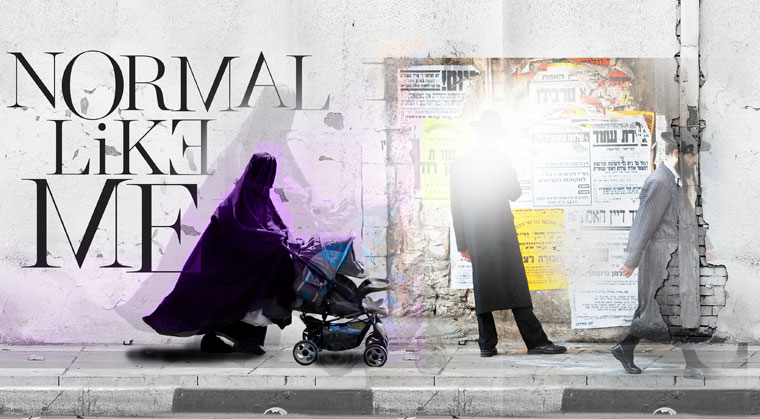Normal Like Me: Chapter 33

“I’ll give up the editing, and that way I won’t have to deal with people.” That remark trailed off on a note of revulsion mixed with despair

Wednesday, 4 Kislev 5775
I
tzik paced back and forth on the strip of desert sand known as Nachal Tzofer. The name “Nachal” was supposed to denote water of some sort, but there was not a drop of water to be seen. Alon had assured him that there would be a rushing stream — after the winter rains began. If so, said Itzik, then every winter his neighborhood in Jerusalem ought to be called “Nachal Geulah.” Alon had chuckled.
But right now the stream had yet to materialize, and the sand was burning under Itzik’s feet. And he hated human beings. Every last one of them.
“And what are you?” his friend Leiby had asked him, his voice ringing out from the cell phone as cheerful as ever. “Aren’t you a human being yourself?”
“No. I’m a misanthrope.”
Leiby just laughed.
“Really, Leiby,” Itzik pressed on, not amused at all. “You people, and I mean all of you in general, you’ve made all sorts of rules about manners and good behavior that make no sense to me. Why do I have to keep your rules if I don’t even understand them?”
“What do you mean by rules?”
“Like when somebody calls me and asks me if he’s disturbing me. And I, as a free and rational being, tell him yes, he is, and I hang up. What could be more normal than that? He asked me a question, I gave him an answer. An honest answer. And then later, I find out that my honest answer insulted him, so he made a big scene in front of the publisher and demanded that they replace me with another editor. And they call me up and tell me I have this tendency to be offensive, and I need to learn how to treat people.”
Leiby’s smile could be felt all the way from Jerusalem to Tzukim. “Itzik, you’re the normal one. No doubt about it,” he said. “But I’ve got bad news for you. We’re the majority.”
“Unfortunately,” Itzik rejoined, pulling up a sprout of some thorny shrub. Now his hand was bleeding. “That’s why I went away. To the desert. I couldn’t stand people anymore.”
It sounded poetic and idyllic, but Itzik knew he couldn’t live like this forever, alone with the sand and the sky. His antipathy for society notwithstanding, something in him longed for his fellow human beings, although he couldn’t seem to master their scripted social codes or put on a satisfactory performance for them.
“But why can’t you stand us?” Leiby probed. “We’re so nice.”
“No, you’re not. You’re always getting offended. You’re always demanding to be treated this way and that way. You’re always wanting to be babied. You want me to lie to you and keep saying how nice and wonderful you are, and make approving comments about all the nonsense you spout. Tell me, Leiby, how can I possibly stand you guys?”
(Excerpted from Mishpacha, Issue 699)
Oops! We could not locate your form.



